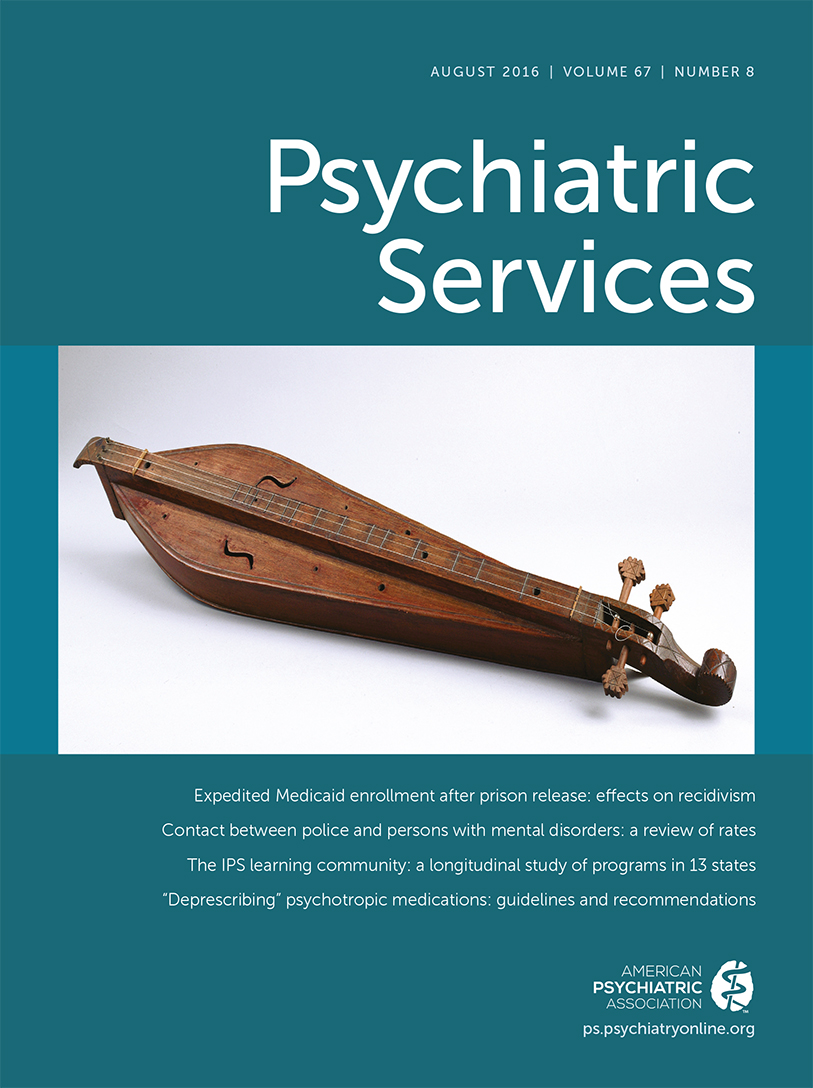Trends in Off-Label Use of Second-Generation Antipsychotics in the Medicare Population From 2006 to 2012
Abstract
Objective:
The study evaluated trends in the off-label use of second-generation antipsychotics in the Medicare population, a practice that has been identified as lacking adequate supporting evidence for many indications.
Methods:
Medicare claims data from 2006 to 2012 were used to identify beneficiaries who filled at least one prescription for any second-generation antipsychotic. Any use that was not associated with a medical claim for an approved indication in a given year was classified as off-label use. Rates of off-label use and of diagnoses associated with off-label use were compared over time. Fill counts standardized for 30-day supply and costs were compared by type of use.
Results:
On the basis of a sample of 490,314 patient-years, the rate of off-label use among beneficiaries prescribed a second-generation antipsychotic declined from 51% to 45%. Fill counts were 16% lower for off-label users compared with on-label users. Off-label users had higher out-of-pocket costs but lower total costs for second-generation antipsychotics. Off-label users most commonly had claims related to dementia, minor depression, anxiety disorders, and other psychosis. The proportion of off-label users without any claims for the most common off-label uses of second-generation antipsychotics declined from 45% in 2006 to 30% in 2012.
Conclusions:
Off-label use of second-generation antipsychotics has declined, especially among persons without any of the common off-label conditions. The diagnoses accompanying off-label use did not systematically reflect changes in the evidence base for the use of these drugs, suggesting a mismatch between evidence supporting the use of off-label second-generation antipsychotics and prescribing practices.



